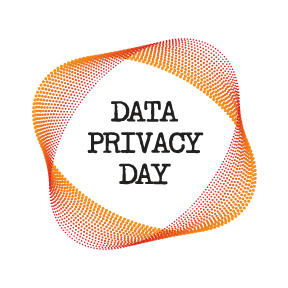What is the fuss about? The reason that the FBI and Apple are in a heated debate is over one iPhone, but it is much more than that. The argument began after a shooting in San Bernardino, California on December 2, 2015. Considered as the worst mass shooting in modern US history since 2012, says NBC, the shooting ended with 14 killed and 21 wounded. The 2 suspects for the shooting were both killed in a gun fight with policemen. Terrorism is suspected (Ortiz, 2015). With the FBI’s hands on the iPhone of one of the suspects, the FBI is desperately trying to gain access to the information on it to see if there was another shooter; law enforcement had previously believed that there may have been 3 shooters rather than just 2 (Ortiz, 2015).
In order to collect this information, the FBI needs access to the iPhone. However, they are are struggling to gain access. The FBI had contacted Apple and asked that they help them get information off of the device. When asked, Apple denied helping, claiming that the FBI wants them to create a backdoor to get into all iPhone products. The issue here is that iPhones are encrypted.
Why is this topic so controversial? This topic is so controversial because it goes so much further beyond just one simple iPhone; this situation magnifies the debate of security versus privacy. This is something that the US government has been in turmoil over for years, especially when terrorism is involved.
The FBI is more concerned with security over privacy, while Apple is more concerned with privacy over security. The FBI wants access to an iPhone that they have been locked out of when they reset the iPhone’s password when attempting to get into it. Unfortunately, Apple says that since the password has been reset, there is no longer a connection to the cloud information because there is a password disconnect (Burchette, 2016). This is why the FBI has asked for a program to hack into the encrypted iPhone. This is also why Apple is non-compliant .
Apple has exposed this situation because this shows a government that is no longer concerned with privacy, or with the consequences of creating such a program. The difficulty of the matter is that this all comes back around to the Patriot Act, an amendment to the United States’ Electronic Communication Privacy Act (ECPA). The Patriot Act has been around to create a loop hole for the Wiretap Act in order for law enforcement to surpass the need for a warrant for wiretapping, if there is suspected terrorism (Craig, 2013). Given the controversy of this Act, there is clarity as to why this iPhone dilemma has gotten so big.
Can you see both sides? Of course. This entire thing has two different ways of looking at one case:
- FBI’s Point of View: There is a need to put the security of the United States over the general privacy of the people. There is a need to look at the risk of not knowing crucial information on terrorism. If you do not know what is going on, there is no way that another attack can be prevented.
- Apple’s Point of View: There is a need to put privacy before everything else. If a program is made to get into the encrypted iPhone, it can be used by anyone who has it, and that is why there is so much resistance to make it. This would not be one case, this would be the start of a further loss of privacy.
What is happening as of right now? People have begun picking sides, and sticking to them. Apple has written up its legal response detailing their refusal to the FBI’s request(s) (Heisler, 2016). The FBI has continued to defend itself, claiming that it is not asking for a backdoor into all iPhones, but means to get into this one in particular.
All in all… This is a highly controversial topic and it is going to be one of many cases that will further influence the Crypto Wars, the battle between privacy-minded technologists and the U.S. government (McLaughlin & Froomkin, 2016).
__
Sources:
Burchette, J. (2016, February 21). FBI Admits It Reset San Bernardino Shooter’s iPhone Password. Retrieved from The Wrap: http://www.thewrap.com/fbi-admits-it-reset-san-bernardino-shooters-iphone-password/
Craig. (2013). Cyber Law: The Law of the Internet and Information Technology First Edition (pp. 92-131). Pearson.
Heisler, Y. (2016, February 25). Here’s Apple’s long-awaited legal response to the FBI. Retrieved from BGR: http://bgr.com/2016/02/25/apple-vs-fbi-legal-filing/
McLaughlin, J., & Froomkin, D. (2016, February 26). FBI vs Apple Establishes a New Phase of the Crypto Wars. Retrieved from The Intercept: https://theintercept.com/2016/02/26/fbi-vs-apple-post-crypto-wars/
Ortiz, E. (2015, December 3). San Bernardino Shooting: Timeline of How the Rampage Unfolded. Retrieved from NBC News: http://www.nbcnews.com/storyline/san-bernardino-shooting/san-bernardino-shooting-timeline-how-rampage-unfolded-n473501

